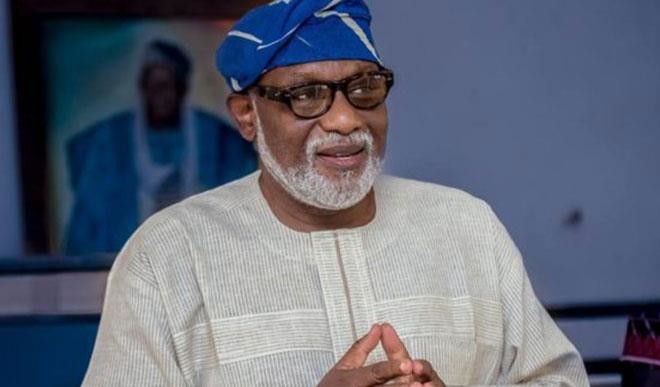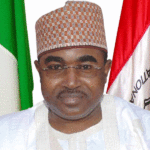Ondo state governor, Rotimi Akeredolu, on Monday opposed the proposed death penalty for hate speech offenders in the country.
He compared the penalty to sentencing someone who steals N10,000 to death and freeing another that steals N1million.
Governor Akeredolu disclosed this in Ilorin, Kwara state at the opening ceremony of the sixth biennial international conference of the University of Ilorin Centre for Peace and Strategic Studies department.
Speaking on the theme: “Domesticating Sustainable Development Goal 16 in Nigeria: Peace, Justice and Strong Institutions,” the governor said, “when I was the president of the Nigerian Bar Association (NBA), I vehemently opposed capital punishment for condemned criminals. I will be a turncoat as governor to now support death penalty for hate-speech offenders.”
He added: “As the governor of Ondo state, I will not commit to death those condemned criminals; instead, I will look into how to commute their sentences to life imprisonment. Or I will transfer them to other administrations.”
He regretted that there is no virile opposition in the country, adding that “every other person who was in opposition in 2015 has now crossed over to the ruling All Progressives Congress (APC). I am amused if I see them decamping in droves to the APC.”
The former NBA president added that injustice, either real or imagined, has been responsible for the absence of peace in Nigeria.
He said “Any discussion on justice which leaves out the deplorable conditions of the people is self-serving; it is patently unjust to have the mass of the people depend on handouts from the political class having lost the capacity to contribute to the development of the polity.
“Until and unless the identifiable geo-political zones are encouraged to realize their potentials with a view to participating actively in the economic activities for growth and prosperity, there will be no end to crises.
“Current measures put in place seem insufficient to rescues the country from socio-economic doldrums. Therefore, the preponderance of conflicts in virtually all parts of the country seems to suggest failure of the system. Working at these manifest lapses will assist greatly.
“Institutions of state must be self-regulating. The basic law of the land, the Constitution, and relevant subsidiary legislations must be the instruments which determine the life and functions of any institution created to take care of the welfare of the people.”
Speaking earlier, the Vice Chancellor of the university, Prof Sulyman Abdulkareem, lamented that the world, particularly developing countries are caught up in the ensnaring web of ceaseless and needless conflicts as well as entwining miseries of ineffective governance that sustain structural tensions and retard sustainable development.
Abdulkareem added that “by 2017, 68.5 million people mostly from developing nations of the world, were estimated to have been forcibly displaced as a result of conflicts, violence or human right violations.
“Corruption, bribery and theft are said to have caused developing countries $1.26 trillion per year, thereby retarding their sustainable growth. It is saddening that our continent of Africa is suffering more than any other parts of the world from these centrifugal forces against sustainable development.
“Sadly, too, Africa has become the centre of conflicts. Various intra and inter conflicts, uprising and violence spread across the continent. Boko Haram in the north eastern part of Nigeria has become seemingly insurmountable. Kidnapping has become a common menace that threatens the security and guarantee of human rights of citizens in most parts of developing nations of the world.”

 Join Daily Trust WhatsApp Community For Quick Access To News and Happenings Around You.
Join Daily Trust WhatsApp Community For Quick Access To News and Happenings Around You.


